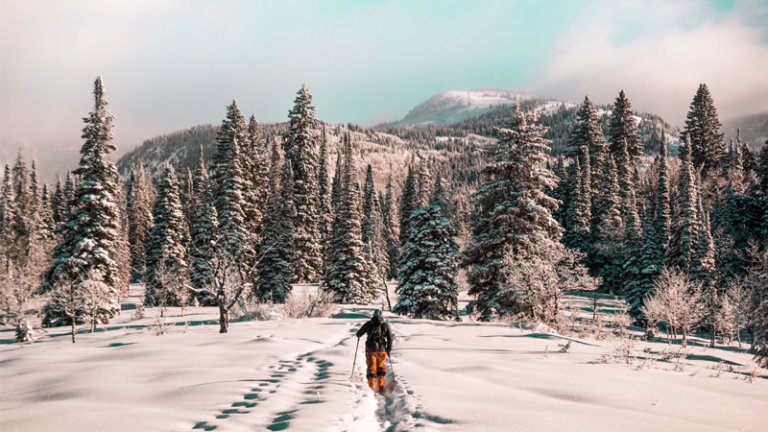Let me tell you all about seasonal work. If you’ve ever seen movies like Chalet Girl or Aspen Extreme, you might think it’s all 18 year olds making beds or teaching skiing.
In reality, you’re only partially right. Most holiday destinations need seasonal staff and the variation of jobs available is endless. You also don’t need to be straight out of high school to apply. Season workers or sometimes known as “Seasonaires” come in all ages and backgrounds.

What Is The Meaning Of Seasonal Work?
A seasonal position is typically a temporary summer or winter position in popular tourist spots. You can choose to chase a never-ending winter or a never-ending summer, depending on your preference. Or stick to one hemisphere and enjoy all seasons. But before you jump in head first here is the truth about working seasons.
What Is An Example Of A Seasonal Job?
- Retail associate during the holiday season.
- Lifeguard or swimming instructor during the summer months.
- Ski resort employees during the winter months.
- Carnival workers during the summer and fall seasons.
- Landscaper during the spring and summer months.
- Camp counsellor during the summer months.
- Tax preparer during tax season.
- Ticket taker or concession worker at an outdoor concert venue during the summer months.
- Promotional staff at a trade show during specific times of the year.
- Agriculture workers during harvest season.
These are just a few examples of the many seasonal jobs available!

What Is The Duration Of A Seasonal Job?
The duration of a seasonal job can vary depending on the industry and company. Some seasonal jobs may only last for a few weeks or months, while others may last for several months or even up to a year.
For example, jobs in retail during the holiday season typically last from mid-November to early January, while summer jobs like lifeguarding or working at a summer camp can last from May to August. Harvest jobs in agriculture may only last a few weeks, while ski resort jobs can last for the entire winter season.
It’s important to research the company or industry you are interested in to get a better idea of the typical duration of each role. Keep in mind that seasonal jobs are usually temporary and may not provide job security past the specific season or time period.
What Are The Benefits Of Seasonal Work?
Pros:
- Flexibility: Positions can often be more flexible than a full-time, year-round job, allowing you to balance work with other obligations like school, family, or travel.
- Extra income: Seasonal jobs can provide an opportunity to earn extra income during a specific period, which can be helpful for covering expenses or saving up for a future goal.
- Work experience: Seasonal work can provide valuable work experience in a specific industry or build skills like customer service, teamwork, and time management.
- Networking: Jobs can also provide an opportunity to meet new people and network with potential future employers or colleagues.
- Reduced stress: Positions often come with a clear end date, allowing you to focus on work during the season without worrying about long-term job security.
- Variety: Depending on the industry, seasonal jobs can provide a chance to work in different locations or engage in different types of work each season.
- Seasonal perks: Some jobs come with added perks like discounts on products or services, free admission to events, or other incentives for employees.
- Potential for rehire: If you do well in a seasonal job, there may be opportunities for rehire or longer-term employment in future seasons.
- Low commitment: Seasonal jobs typically do not require a long-term commitment, giving you a chance to test out a role or industry without a long-term obligation.
- Develop new interests: These roles often provide a chance to engage with new people and tasks, which can help you develop new interests and hobbies.
Keep in mind that the benefits of can vary depending on the industry, job, and individual circumstances.

What Are The Downsides Of Seasonal Work?
Cons:
- Limited job security: Positions are often temporary and may not offer long-term job security or stable income.
- Inconsistent income: It may not provide consistent income or hours throughout the year.
- Limited benefits: They may not offer the same benefits and perks as full-time jobs, like health insurance or retirement benefits.
- Unpredictable schedules: Depending on the industry, a seasonal position may come with unpredictable schedules, making it difficult to plan other obligations or commitments.
- Competition for jobs: Because seasonal work is often popular among students and other workers, there may be a lot of competition for jobs, making it difficult to secure a position.
- Lack of training: Because the work is often temporary, employers may not invest heavily in training staff, leaving them to learn on the job.
- Physical demands: Some seasonal jobs, like agriculture or retail during the holiday season, may come with physical demands like long hours or physically demanding tasks.
When To Apply For Seasonal Work
The ideal time to apply for seasonal positions can depend on several factors, such as the industry, business cycle, and job type. However, in general, it’s best to start looking for seasonal jobs a few months before the start of the season or the busiest period for the industry.
For example, if you are interested in getting a job in retail during the holiday season, it might be a good idea to start applying in September or October. If you are looking for a summer job, it might be best to start your search in the early spring.
Keep in mind that some companies may have earlier or later hiring timelines, so researching the specific business and industry can provide more insight into when the best time to apply is.
It’s also important to be proactive and have a strong application that highlights your relevant skills and experience. Applying early can give you an advantage in the hiring process and increase your chances of getting hired for a seasonal job.

Tips To Help You Get Seasonal Jobs
- Research the industry and job market: Before applying for placements, it’s helpful to research the industry and job market to get a better sense of what types of seasonal jobs are available, what qualifications are needed, and what the application process is like. This can help you tailor your job search and applications to the specific industry and job you are interested in.
- Update your resume and cover letter: Once you have a sense of the types of jobs you want to apply for, make sure to update your resume and cover letter to highlight your relevant skills and experience. Make sure to customize your resume and cover letter for each job you apply for.
- Start applying early: As mentioned earlier, it’s best to start applying for seasonal positions a few months before the start of the season or the busiest period for the industry. Be proactive in your job search and apply to multiple jobs to increase your chances of getting hired.
- Prepare for interviews: If you are invited to an interview, make sure to prepare in advance by researching the company and industry, practising your interview skills, and preparing thoughtful answers to common interview questions.
- Follow up after applying: After submitting your applications, it’s a good idea to follow up with the employer to reiterate your interest in the job and check on the status of your application. This can help demonstrate your enthusiasm and help you stand out from other candidates.
For the best remote jobs, check out our in-depth guide here!

Tips For Success In Your Seasonal Position
Be Proactive And Take Initiative
Show that you are willing to go above and beyond by taking on extra tasks or helping out where needed. This can show employers that you are dependable, resourceful, and an asset to their team.
Treat Your Seasonal Job Like A Permanent Position
It’s important to treat a seasonal job like a permanent position for several reasons. First, it shows employers you are reliable and responsible, which can increase the likelihood of being rehired in future seasons or even offered longer-term positions.
Second, treating your job seriously allows you to learn more about the industry and develop valuable skills that may help you professionally in the future. Finally, taking ownership of your role can lead to greater job satisfaction and make you feel good about yourself too.
Set Priorities And Manage Your Time
Seasonal jobs often come with tight deadlines and busy periods. Make sure to stay organized by setting priorities, staying on top of assignments, and managing your time effectively.
Dress The Part
Even though it’s a temporary job, dressing the part can show employers that you take the position seriously and are serious about succeeding in it. Stick to a professional dress code and communicate with your supervisors about what is expected of you when it comes to wardrobe.
Take Care Of Yourself
Staying healthy and taking care of yourself should always be a priority, but especially so when juggling multiple responsibilities in a short period of time. Maintain a good work-life balance, get plenty of rest and fuel up on healthy food throughout the day to stay focused and energized at work.
Communicate With Colleagues
Seasonal jobs often involve working with a variety of people throughout the season. Take the time to get to know your colleagues and communicate clearly with them to ensure everyone is on the same page and working together towards a common goal.
Take Feedback Seriously
Even though it may be a temporary position, take feedback seriously and use it as an opportunity to learn and improve.
Ask Questions When In Doubt
If you ever feel uncertain or confused about something at work, don’t hesitate to ask questions until you understand what needs to be done. Asking questions shows that you care about the job and want to do it right, which can help increase your chances of being rehired for future seasons.
Keep Your Schedule Flexible
Seasonal positions often come with unpredictable schedules, so stay flexible with your own scheduling needs. When possible, try to keep some free time available for last-minute shifts or requests from employers so that they know they can rely on you when needed.
Have Fun
Last but not least, have fun! Seasonal jobs may come with long hours or challenging tasks, but don’t forget to enjoy yourself while on the job as well!

The Risk Of Seasonal Work
At home you have a routine, you have friends, somewhere to live, a job, and a social life. Going away to work your first season can be daunting, especially if you are going alone. You will have to start over, and at some point, you are going to have to talk to a few strangers in order to make some friends. But that’s the hardest part.
What nobody tells you about seasonal work is how much it can change you. That person you know now, forget about them. They are about to change forever. A summer season may lead to off-season travel, then onto a winter season.
You will taste a plethora of new cuisines, meet the most interesting people, hear of jobs you didn’t even know existed and potentially be exposed to a life you never thought was possible.
How Seasonal Work Helps You Grow
You have found a job, a place to live and made friends in a foreign country, one that probably speaks a different language than your native tongue. Once you have succeeded in this first step, a wave of realisation comes over you. You can do this ANYWHERE.
Living in a new place can in some ways be more difficult than travelling to a new place. When you are travelling, if you don’t like somewhere you can just move on. When you work a season you may be tied into a work contract. There is pressure to pay bills, make friends, and work hard, while also trying to enjoy your new surroundings.

Your first season will give you a newfound confidence that will help you make decisions about onward travel or further seasonal positions. The great thing about seasonal jobs is that they are super flexible. You may only be tied into a contract for 3-6 months so if that place or job isn’t for you, it won’t be long before you can make a change.
What will you encounter?
- The opportunity to see life through a different lens
- You will meet different people from all kinds of backgrounds
- Discover newfound independence and confidence
- Parts of your personality you weren’t aware of
- Potential job opportunities you didn’t know existed
How Seasonal Work Gives You More Freedom
Back-to-back positions allow you to work between 8-12 months of the year. This can give you the financial security you need, or the freedom to travel between seasons. You can stay on one continent and jump from the winter season to the summer season. This will usually give you May and October free to travel before the seasons really get going.
For the Northern Hemisphere, this is spring and autumn, in a lot of popular travel destinations, this is also known as shoulder season. Shoulder season is the best time to travel anywhere. The crowds are lighter, the prices are cheaper and the weather is milder.
This is also true for the Southern Hemisphere, except their seasons are the opposite. If you are a lover of one season and want to chase an endless summer or never-ending winter, a jump between the Northern and Southern hemispheres makes this possible.

For instance, the ski season in Europe is from December to April, and in Oceania it’s June-September. This gives you 6-8 weeks on either side of the season to visit home or travel while getting as much out of winter as possible.
That fear you experienced before your first trip will diminish, not disappear completely, most travellers still have a fear of something. After your first successful season (I say successful because let’s face it, living away from home won’t be for everybody) your emotions will be predominately excitement.
You will be consumed with the thrill of going somewhere new. Knowing the possibilities that await, how many new people you are going to meet, or what doors will open to further your career.
Work / Life Balance Options
- Work summer and winter, and take spring and autumn off
- Work year-round take normal holidays, 4+ weeks per year
- Work one season (5-6 months) and take half the year off
- Work peak season only, Christmas, New Year, Half Term, Summer Holidays
The Wrap-Up: Seasonal Work | Everything You Need To Know
Seasonal work will start to change the way you think, and how adaptable you become. You now have the power to control your future, where in the world do you want to live?
Don’t you now have the skills to pick up sticks and move to wherever you like? Haven’t you learnt to make new friends in foreign places? You’re meeting people who come from different countries and speak different languages. Don’t you love how much you are learning about different cultures?
The thing about working seasonally, is the longer you do it, the more you evolve, and the more you learn about yourself. Over time you will leave pieces of your heart and soul in different parts of the world, and home may become several places.
That place you used to call home, and the person you know to be now are going to change so much, that they may become unrecognisable. But isn’t that exciting?





